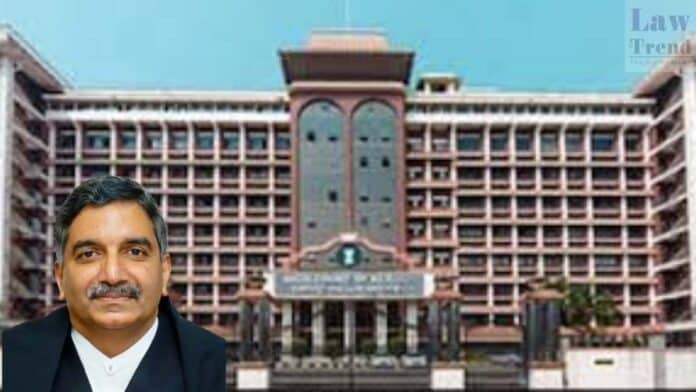Recently, The Kerala HC ruled that the complainant is Not Victim U/s 2(wa) CrPC.
The bench of Justice V.G. Arun was dealing with the petition challenging the order of the Judicial First Class Magistrate Court, acquitting the accused in the complaint filed by the petitioner under Section 142 of the Negotiable Instruments Act.
In this case, The Registry noted defect since the leave petition is filed beyond the period of limitation, without appending a petition for condoning the delay.

Prabhu K.N. and Manumon A, counsels for the petitioner referred to the case of Sobhanakumari K. v. Santhosh @ Pallan Shaji where the Bench has observed that “after the Code of Criminal Procedures Amendment Act, 2008 came into force, the victim has a right of appeal against an order passed by the court acquitting the accused and no period of limitation is prescribed for filing the appeal. The only requirement being that notwithstanding the absence of any period, the victim must prefer the appeal after obtaining leave of the Court. Further, even if no period of limitation is prescribed, the appeal must be filed within a reasonable period of 90 days from the date of the order appealed against. The defect was hence answered by asserting that there is no delay since the period of 90 days from the date of order ended during vacation and the leave petition was filed on the reopening day.”
It was further contended that the complainant in a prosecution under Section 138 of the Negotiable Instruments Act falls within the meaning of ‘victim’ as defined in Section 2(wa) of the Criminal Procedure Code and is entitled to file appeal based on the proviso to Section 372 of the Code.
High Court opined that the above finding, only affirms the declaration of law in Omana Jose v State of Kerala. In this context, it is essential to understand the meaning of the term ‘complaint’ as defined in Section 2(d) of the Code. Going by the definition, any allegation made orally or in writing to a Magistrate that some person, whether known or unknown, has committed an offence, will fall within the meaning of ‘complaint’. Pertinently, the definition specifically excludes a police report.
Also Read
The bench noted that Section 378(4) provides the complainant with the right to file an appeal against acquittal in a case instituted upon a complaint, once special leave to appeal is granted by the High Court. In Mallikarjun Kodagali (Dead) v. State of Karnataka and Others, the Apex Court held Section 378(4) to be confined to an order of acquittal passed in a case instituted upon a complaint. The position is further clarified by the observation that the word ‘complaint’ as defined in Section 2(d) of the Cr.P.C. refers to any allegation made orally or in writing to a Magistrate and has nothing to do with the lodging or registration of an FIR.
High Court stated that the finding in Omana Jose v State of Kerala also, the contention that the complainant in a prosecution under Section 138 falls within the definition of ‘victim’ under Section 2(wa) and is therefore entitled to file an appeal under Section 372 of the Code can only to be rejected.
In view of the above, the bench noted that the defect pointed out by the Registry is sustained.
Case Title: Paulose v. Baiju
Bench: Justice V.G. Arun
Case No.: CRL.L.P. NO. 164 OF 2023(FILING NO.)







